
The pioneers who headed out to remote places such as Longreach, were tough people who knew how to make the best out of the situation they found themselves in. Even getting to Longreach in the early days was a daunting expedition. Coming by Cobb & Co stagecoach from Brisbane, the 1200-kilometre journey would have taken them about three weeks. The coach would cover 80-100 kilometres a day and different sectors of the journey were run by different franchises of Cobb & Co, so passengers might have to wait a few days at each major staging post to get the next coach.
In the summer, a lot of the journey would be at night to avoid the heat. “But on the bank to westward, a broad triumphant glow – a hundred miles shall see tonight the lights of Cobb & Co,” wrote Henry Lawson in the poem The Lights of Cobb & Co.
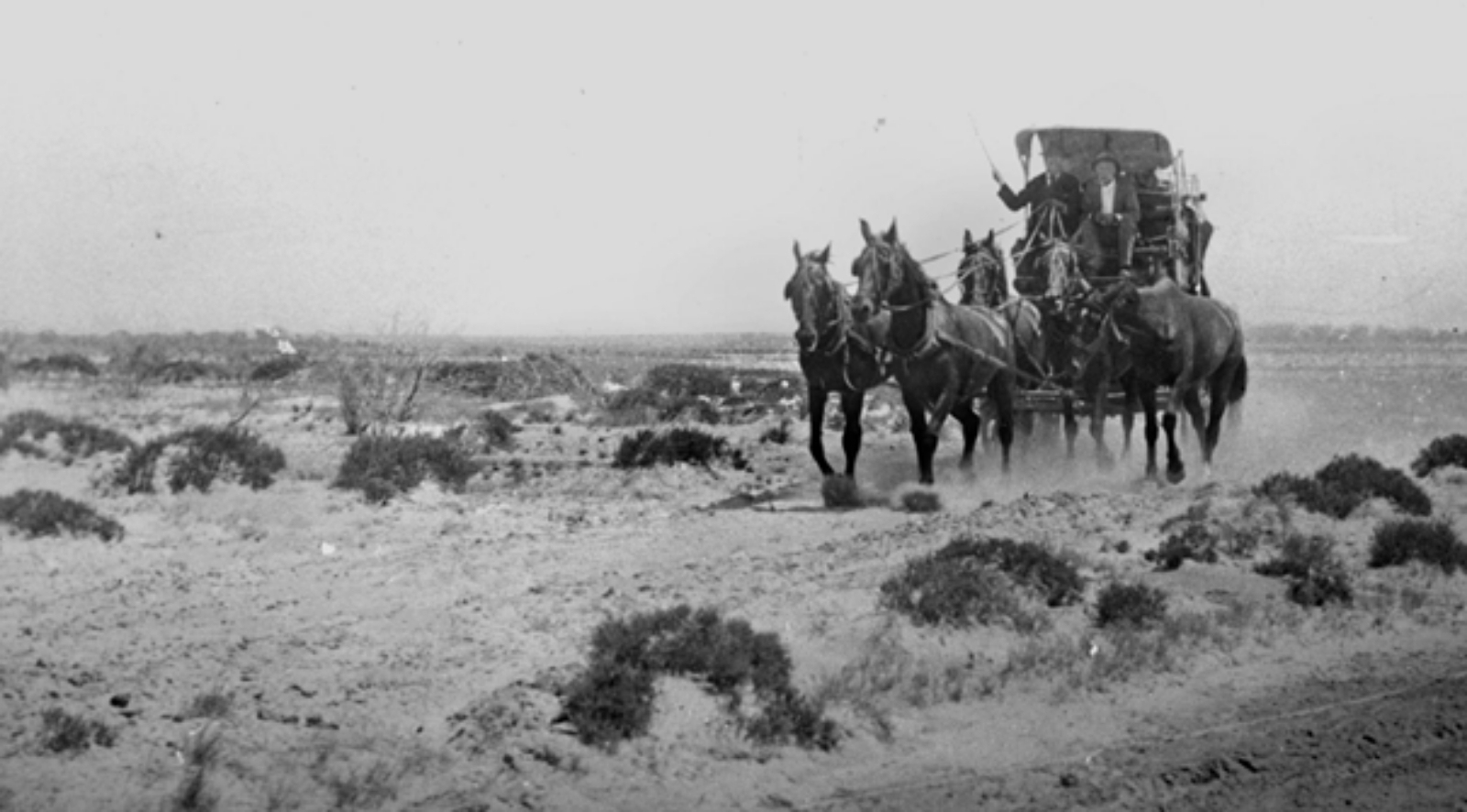
The journey had its dangers too, as it traversed rough terrain, flooded rivers and other hazards. A Cobb & Co driver and his son are buried in Longreach cemetery. Their horses panicked as a storm approached and their coach rolled.
Needless to say, visitors to Longreach these days have a much easier journey but, at Outback Pioneers, we want to really immerse them in what life was like for those early settlers (without the dangers and hardship, of course!).
The Cobb & Co Stagecoach Experience takes them along part of the original Cobb & Co Royal Mail route from Longreach to Windorah. As the stagecoach creaks and rattles along the dirt track through the bush, you’re really living the pioneer experience. We have re-created it exactly as it would have been – with the number of horses, the speed, and the seating. We even gallop for a stretch, so you can feel the excitement of outrunning the storm!
When the last stagecoaches in the 1920s pulled into Longreach, many of the weary travellers would have settled in for the night at the The Welcome Home Hotel or the Great Western Hotel.
Those two historic buildings are still in the heritage heart of Longreach, and are now The Welcome Home (Outback Pioneers’ booking office, café and restaurant) and The Station Store. They are at the centre of the heritage precinct, where you can continue your visit to an earlier era.
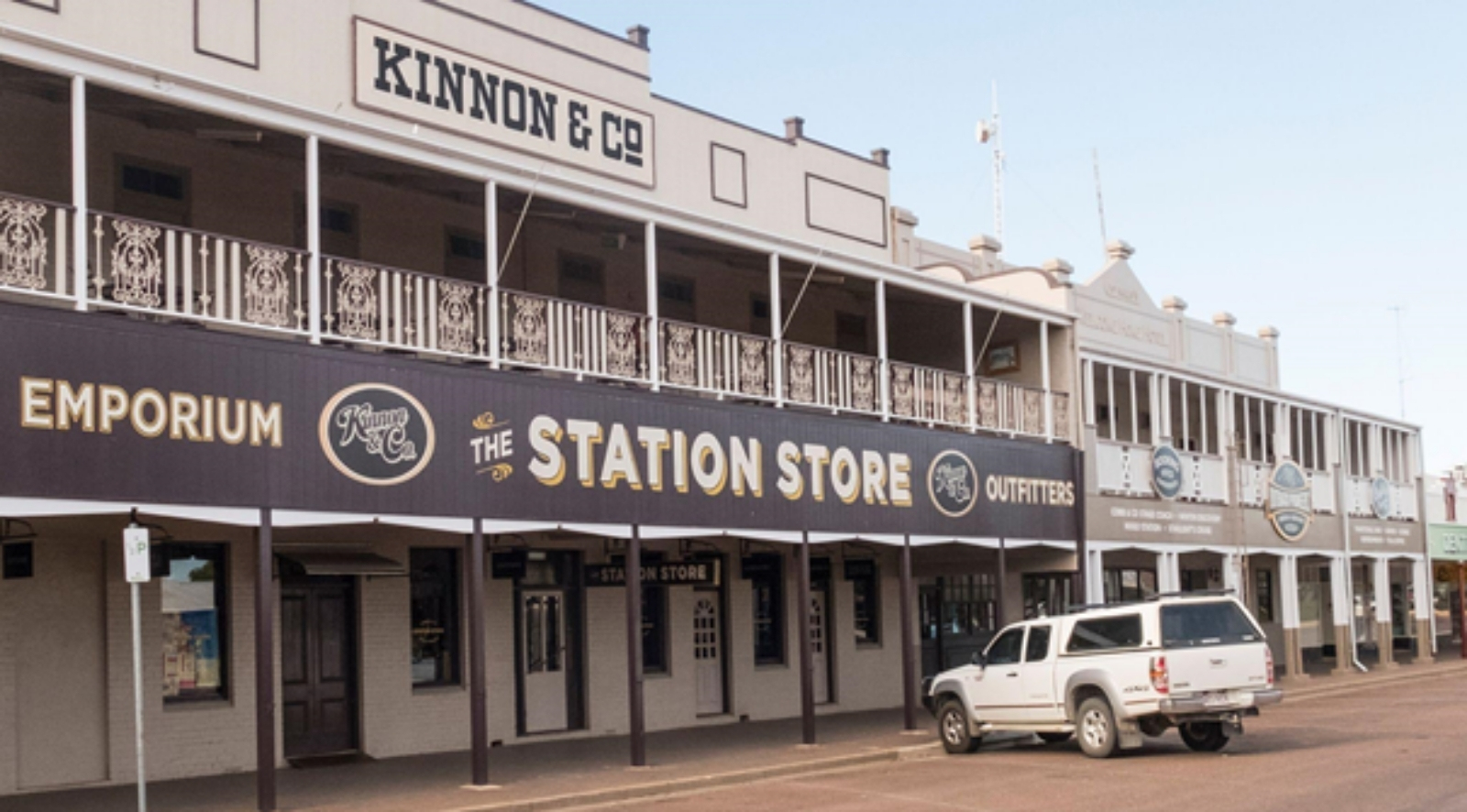
Cobb & Co travellers were well looked after by the local hotels of the day, and we are continuing that hospitality with The Staging Post in the heritage precinct.
Our newest rooms, The Stables, actually look like the oldest ones, as they’ve been created to incorporate many elements of the pioneer story. On your way to your room, you’ll pass some historic vehicles, including the original governess’ sulky from Bowen Downs Station. (It’s said she drove it like a chariot, picking up kids from around the station!)
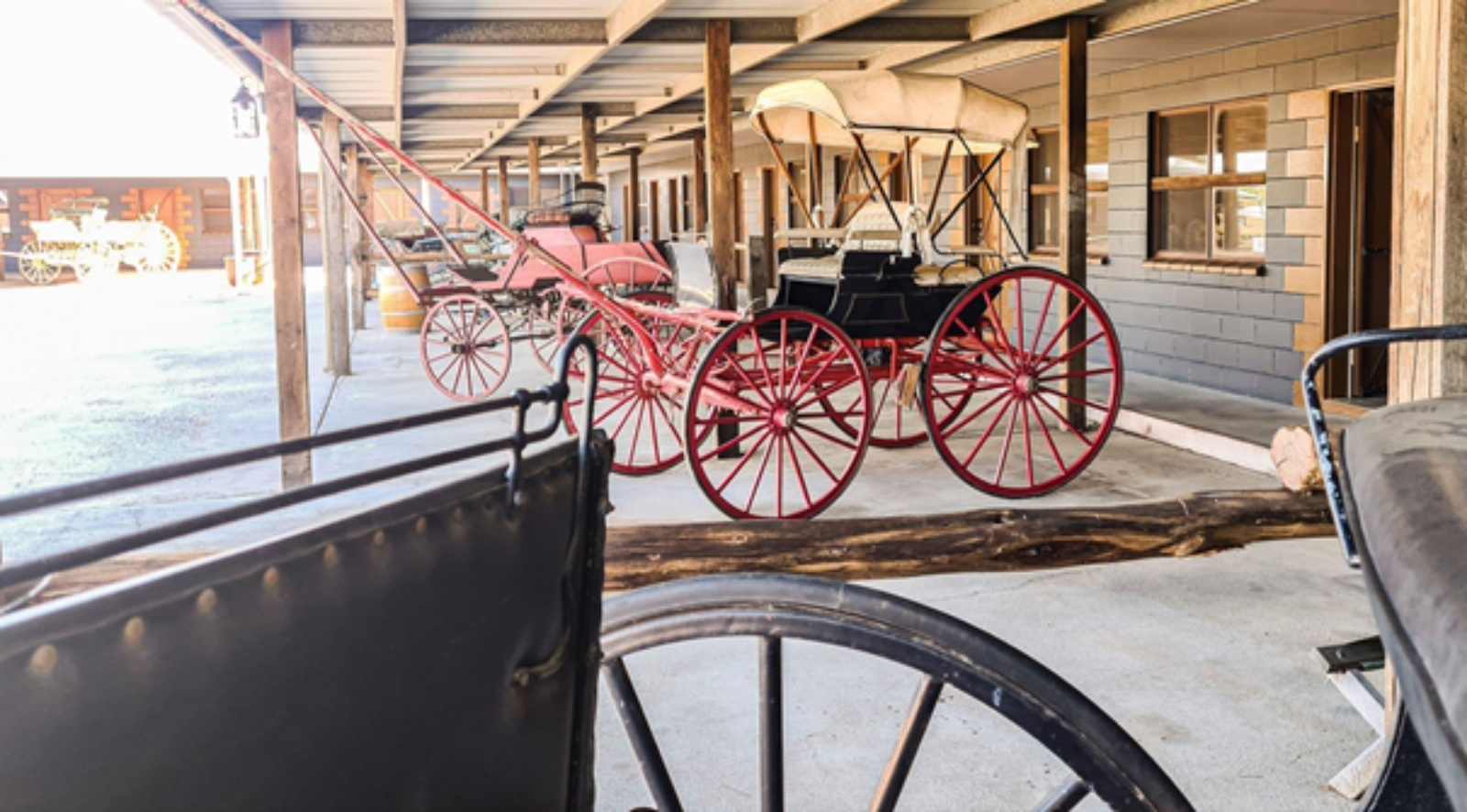
Because there was no millable timber in the Longreach region, pioneers had to bring all the timber in on the wool wagons or re-use timber from earlier buildings. We’ve continued that tradition here in the Stables with timber salvaged from Nogo Station and other local properties.
Guests will discover just how inventive pioneers were in dealing with the extremes of weather and reusing things so nothing was ever wasted.
In your room, you’ll have tea or coffee in mugs made to a design by Freeman Cobb (founder of Cobb & Co). He wanted a mug he could use to warm both hands on crisp winter mornings – a mug without a handle.
You can wash with soap in a ‘soap cage’, which helped the pioneers economise. I remember my grandfather having one of these, which you swirled around in the water to create a soapy, white, washing solution.
As you explore your room, you can see some of the uses that pioneers made of old items. Wine barrels become a stand for a hand-basin, calico flour bags become curtains and mats. Kerosene tins were used to create a chest of drawers or cut in half to make a container to mix damper. They were even cut open and flattened to build sheds. Those pioneers could teach us a thing or two about reducing waste and using resources responsibly!
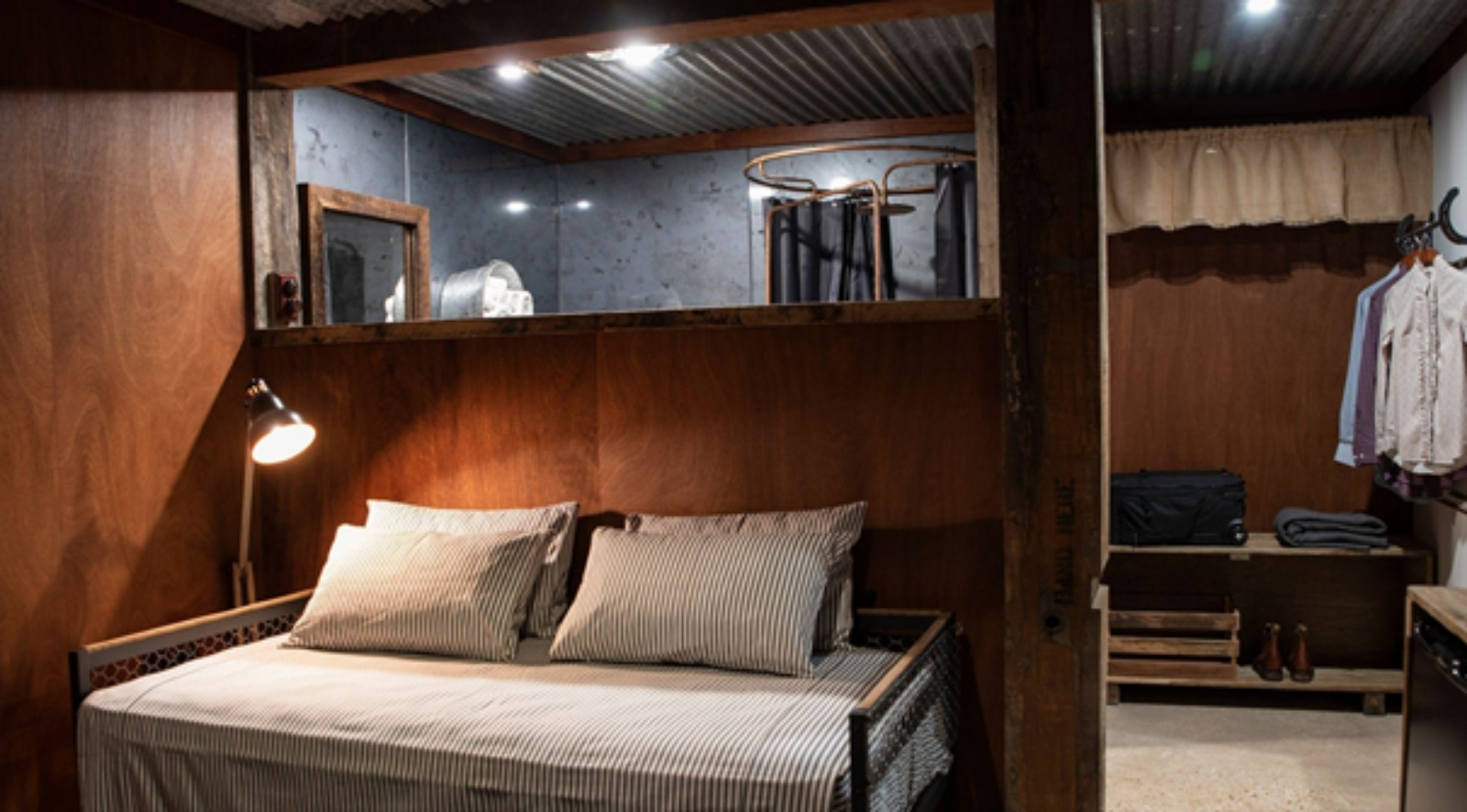
The original outback general stores sold everything the pioneer needed, though it was a much more restricted selection than we would expect today. There wasn’t much money to spend on non-essentials.
They bought food in bulk to take back to their properties, including flour, sugar, dates, potatoes and dried apricots. They could buy clothes and tools, saddles and blankets, pots and pans. Everything was designed to last. The philosophy was to ‘buy it once and buy it well’. Even in my mother’s time, she had favourite jugs and pans that she’d had since she married, and they lasted 70 years!
The Station Store in Longreach re-creates the atmosphere of those early stores and the excitement the pioneers would have felt on a shopping trip to stock up with goods.
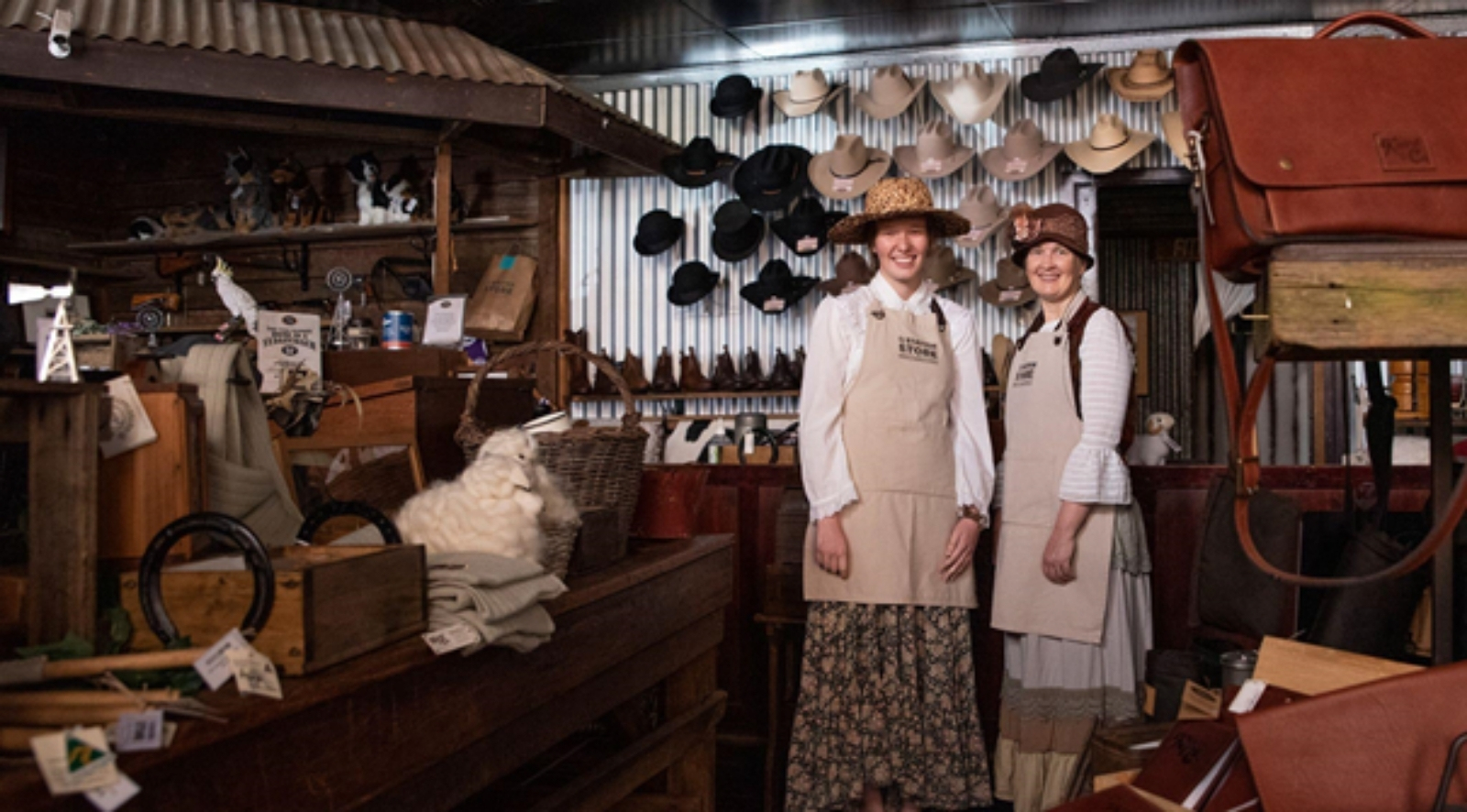
Today you can buy everything an outback traveller might want: clothing, stockman’s supplies, merino wool, homewares, leatherware, toys for the kids or grandkids, books and more.
I believe we have a lot to learn from our pioneers and the lives they lived, valuing what they had and making the most of it. My vision as founder of Outback Pioneers is to immerse guests in an outback pioneering experience from the moment they arrive, so that they will see, hear, touch, taste and do things that bring the pioneer story to life for them. It’s an entertaining adventure that kids enjoy as much as adults. They are fascinated by how different life was just 100 years ago.
The heritage precinct in Eagle Street, Longreach, is already the centre of that outback pioneering experience and we haven’t finished exploring the possibilities yet!
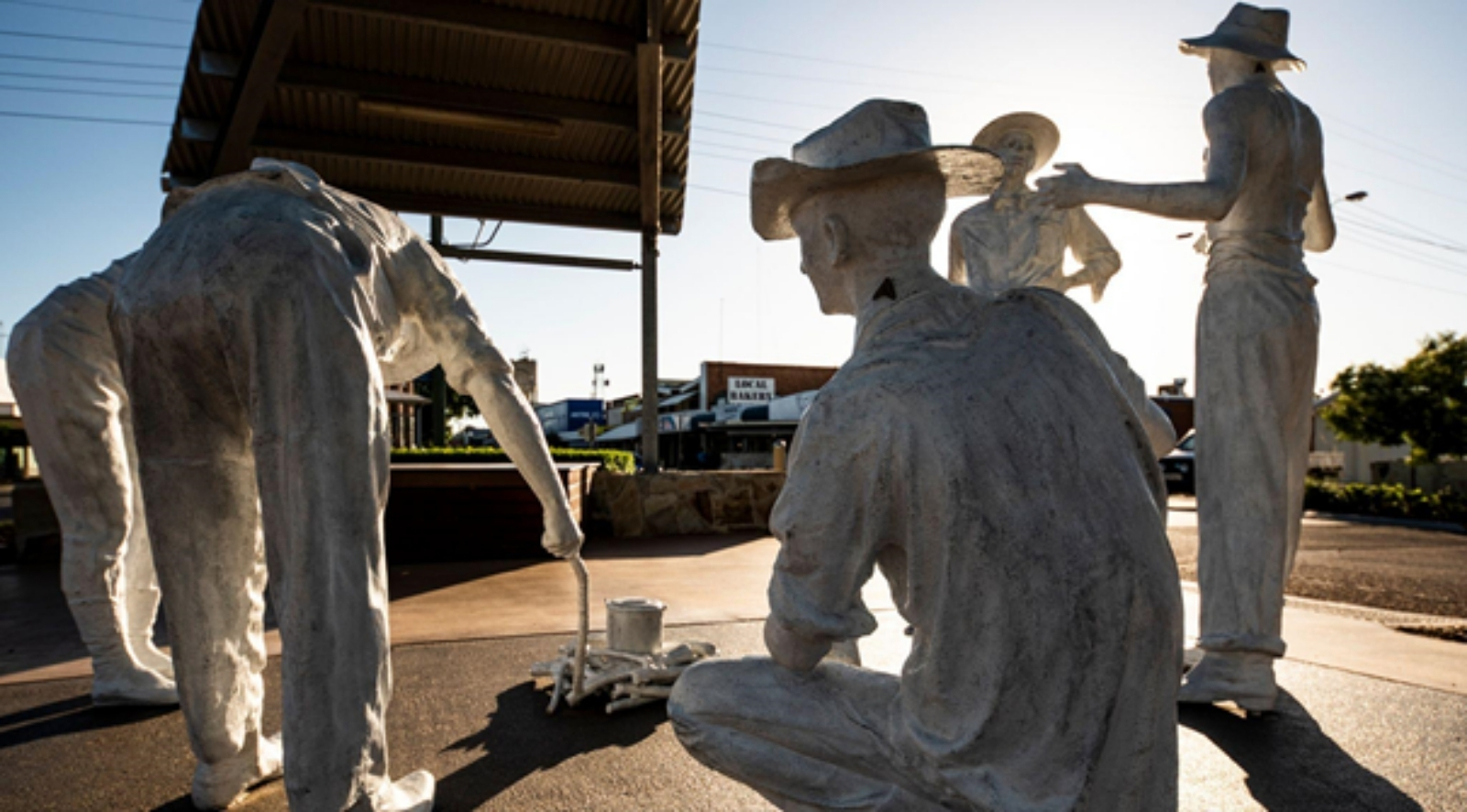
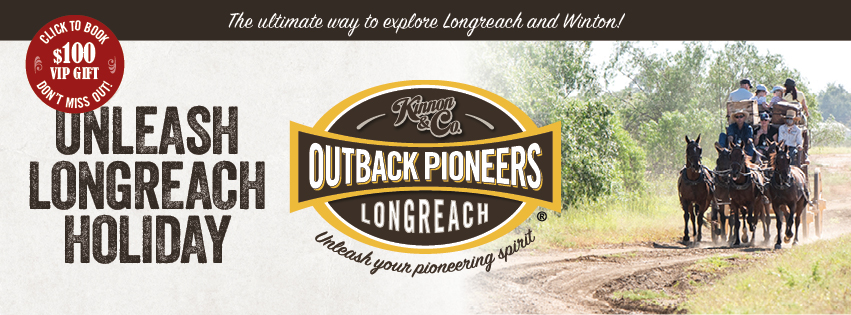
Explore the Longreach and Winton region in six days (five nights). Live the pioneer story, ride the Cobb & Co stagecoach, stay in heritage-inspired accommodation, go on safari at Nogo Station, cruise the Thomson river at sunset, and much more.